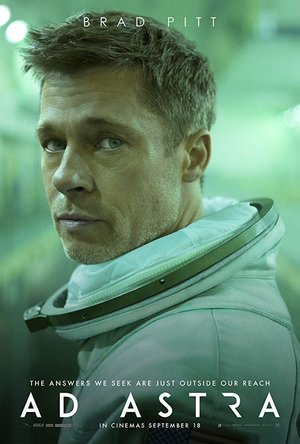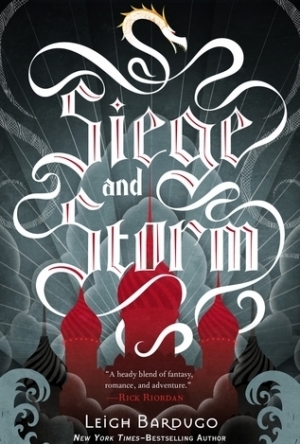Lee (2222 KP) rated Ad Astra (2019) in Movies
Sep 21, 2019
Fully recovered, and ready for debriefing, Roy learns that the power surge is one of many which are now hitting the Earth and threatening the stability of the solar system. Furthermore, it is believed that Roy’s father, Clifford McBride (Tommy Lee Jones), who embarked on a deep space mission some 30 years ago, is responsible for the surges. All contact was lost with that ship and it’s crew 16 years into their mission, known as The Lima Project, and the source of these surges is the region surrounding Neptune. Roy has been selected to send a message to his father in the hopes that he might respond and help to prevent further catastrophic surges.
Roy is a loner, committed to his work above all else. In an early scene we see his wife (Liv Tyler) walking out on him while he carries out a psych evaluation for work. He comes across as cold, distant and uncaring, and his pessimistic narration throughout the movie gives us a real insight into his character and history. He’s proved that he can keep his cool under pressure, always maintaining a low blood pressure, but suddenly losing his father 30 years ago has obviously resulted in some serious daddy issues for Roy. Issues which these latest events now bring to the forefront.
The message Roy must send to his father needs to be transmitted by laser from Mars to Neptune, so Roy must first travel to the moon and then onward to Mars. This being the near future, space travel has now been commercialised, so fairly easy to just hop on a flight, and the moon is now a hive of human activity – there’s even a Subway restaurant there for hungry travellers arriving from Earth! As Roy makes his way across the moon, to the rocket which will take him to Mars, we learn about it’s colonisation and the disputes that occur there involving the countries of Earth. Consequently, Roy’s journey is not without peril.
What is so incredible about the time we spend on the moon, and then Mars, is just how plausible and realistic it all feels. For the most part, I was totally mesmerised by it all – fully engrossed in what is an epic space adventure into the unknown, desperate to find out how it was all going to end. After emerging as one of the highlights of an otherwise disappointing movie recently in ‘Once Upon a Time in Hollywood’, Brad Pitt once again shows us just what a real star he is. Outstanding.
Despite the beautiful cinematography, the engrossing storyline and the occasional bursts of action though, Ad Astra is a real slow burn of a movie, which won’t be for everyone. What let the movie down for me was the last 20 minutes or so, which proved to be something of an anticlimax in my opinion. However, this is still an incredible movie, held together by an amazing actor and some beautiful visual storytelling.
Becs (244 KP) rated Siege and Storm in Books
Aug 25, 2019
TRIGGER WARNINGS: torture, murder, war themes, hallucinations, death, blood, manipulation, violence
Review:
I originally rated this 4 out of 5 stars but I am dropping it down to 3.5 out of 5 stars as I’ve had a lot of time to think about my review and have realized that Siege and Storm has middle book syndrome.
My one problem with Siege and Storm, is that it needed more of the Darkling in it. The Shadow and Bone Trilogy is about the Darkling being the villain and Siege and Storm did not deliver. You’d think there would have been more of a prescense, but there was just not enough of him! Please take Mal away and replace him with the Darkling!! Also, what in the good lordy fucks was that ending Leigh?! ARE YOU TRYING TO KILL US!? I. AM. DEAD.
I still have an ever growing dislike for Mal. He doesn’t have one bit of empathy in his body and it’s so frustrating! Like he’s supposed to be that rock that Alina can fall back onto for support and he’s just being a douche about her having powers. Can we just replace all of Mal’s scenes with more of my BB’s Nikolai and the Darkling plz?! Nikolai had the best character development and was the most relatable in the entire series thus far.
I’ve not really grown to like Alina as much like others do, as she’s still the same annoying girl that I wish wasn’t as special as she is. One thing I do like about her though, is the whole anti hero darkness she has brewing along with the inner turmoil she’s dealing with. With her new found power enhancements, but I just wish her powers weren’t vaguely talked about.
Another thing I wasn’t entirely a fan of was the love triangle *cough cough* love SQUARE *cough cough* trope that took place throughout the novel. Don’t get me wrong, it was extremely well-written and really filled in some (read: a lot of the) boring parts. BUT, this trope is extremely overrated and can really ruin a novel. It was rather annoying that Alina had all of these men to choose from and she couldn’t make up her mind about any of them. Plus, I don’t think she deserves any of them. So… yea.
Okay, onto the story itself. The first half was… such… a… bore… It was so freaking slow and I wanted to give up on it so much. It also kind of put me into a slump on picking up Ruin and Rising. I just didn’t want to be disappointed like I was with Siege and Storm. The second half of the story on the other hand, was packed to the max with intense scenes and action. I honestly thought my wittle heart would crack into a million pieces.
Leigh’s writing style is extremely unique and well-done. She’s able to write scenes that not only grip your attention, but will also pluck each heart string until that breaking point. Then it will rip your heart out of your chest with one swift moment.
Other than a few bumps, Siege and Storm was captivating to a point, but not as much as Shadow and Bone. It’s a soul sucker of a book and I’m enamored with it. The world-building is some of the best I’ve ever seen, especially for a series. The tensions in scenes is extremely palpable – making this a great sequel to an amazing series.
“You know the problem with heroes and saints Nikolai? They always end up dead.

Météo-France
Weather
App
L’application Météo-France, compatible avec votre Apple Watch : l’application météo de...

Law of Attraction Hypnosis by Glenn Harrold
Lifestyle and Health & Fitness
App
This deeply relaxing Law of Attraction hypnosis recording by Glenn Harrold will help you to project...

Meditation Feel The Energy
Health & Fitness and Lifestyle
App
For your personal development and work on yourself, choose the unique Feel the Energy meditation...

Gorilla Workout: Bodyweight Fitness Program
Health & Fitness and Lifestyle
App
"You don't need any exercise equipment for this program, but expect to use every part of your body"...

Ab Workouts MMA+ FREE Core Strength Abdominal Flex
Health & Fitness and Sports
App
Train Like an MMA Pro Fighter! The world’s first app that strengthens every abdominal muscle...

SpellTower
Games
App
- Originally written about in The New York Times, featured in Apple Stores, heard about on NPR, and...

Amnesia: Memories Premium Edition
Entertainment
App
The Premium Edition, which includes all the scenarios, as well as the new one, is available at...

Starbase Orion
Games
App
"The best 4X game currently available for mobile" - PocketTactics.com "This one is geek heaven" -...

